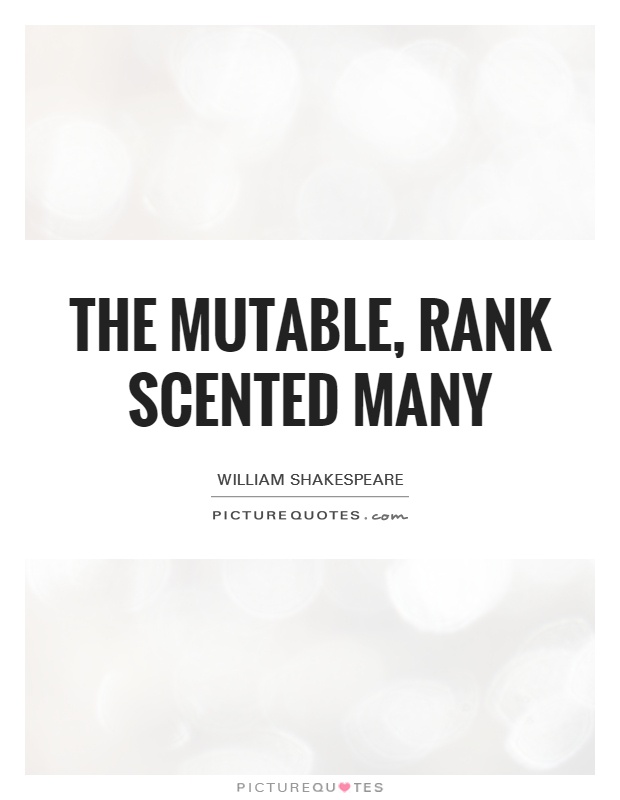The mutable, rank scented many

The mutable, rank scented many
In William Shakespeare's works, the phrase "the mutable, rank scented many" can be interpreted in various ways, depending on the context in which it is used. Shakespeare was a master of language and imagery, and his use of words often carried multiple layers of meaning.One possible interpretation of this phrase is that it refers to the fickle and ever-changing nature of human beings. The word "mutable" suggests that people are constantly changing, both in their thoughts and actions. This idea is a common theme in Shakespeare's plays, where characters often undergo significant transformations throughout the course of the story. For example, in "Macbeth," the titular character goes from being a loyal and honorable soldier to a ruthless and power-hungry tyrant. This idea of mutability is also reflected in the way that relationships evolve and change over time in Shakespeare's works.
The phrase "rank scented many" could be seen as a commentary on the darker aspects of human nature. The word "rank" suggests something foul or unpleasant, while "scented" implies that this unpleasantness is hidden beneath a veneer of attractiveness. This could be a reference to the hypocrisy and deceit that Shakespeare often explores in his plays. Characters like Iago in "Othello" or Edmund in "King Lear" present a charming facade to the world while secretly plotting against those around them. The idea of a "rank scented many" could also be a metaphor for the corrupting influence of power and ambition, which often leads people to act in ways that are morally repugnant.
Overall, the phrase "the mutable, rank scented many" captures some of the key themes that run throughout Shakespeare's works. It speaks to the ever-changing nature of human beings, as well as the darker aspects of human nature that can lurk beneath the surface. Shakespeare's exploration of these themes continues to resonate with audiences today, making his works as relevant and thought-provoking as ever.












 Friendship Quotes
Friendship Quotes Love Quotes
Love Quotes Life Quotes
Life Quotes Funny Quotes
Funny Quotes Motivational Quotes
Motivational Quotes Inspirational Quotes
Inspirational Quotes